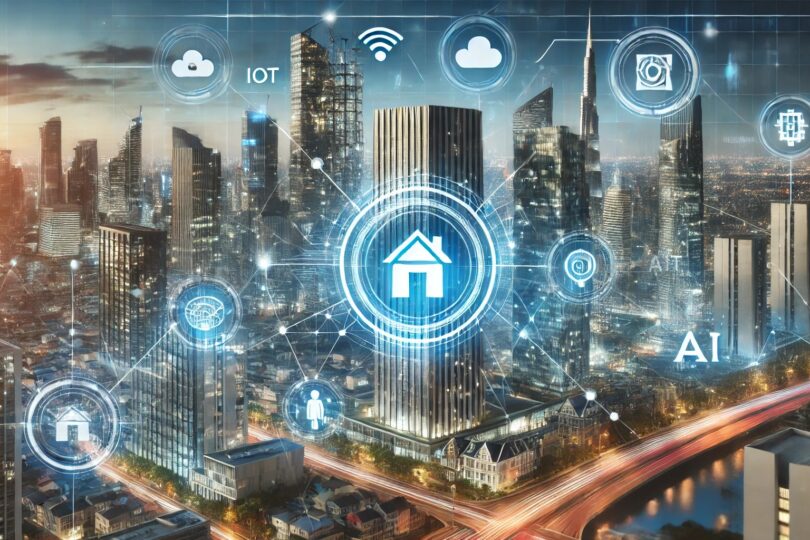The real estate industry is undergoing a profound transformation driven by the integration of cutting-edge technologies. From artificial intelligence (AI) to the Internet of Things (IoT) and blockchain, these technologies are revolutionizing how real estate is managed, marketed, and transacted. This shift is not only enhancing efficiency and transparency but also reshaping customer experiences in significant ways.
AI and IoT are playing crucial roles in construction management and operational efficiency. AI algorithms analyze large datasets to predict maintenance needs, optimize energy consumption, and streamline construction processes. For instance, AI can forecast equipment failures before they occur, allowing proactive maintenance that reduces downtime and costs. IoT devices, meanwhile, enable real-time monitoring of building systems, ensuring optimal performance and safety. This integration leads to smarter, more sustainable buildings that are better equipped to meet the demands of modern living.
Blockchain technology is revolutionizing real estate transactions by providing a secure and transparent platform for recording and verifying deals. By reducing the reliance on intermediaries, blockchain minimizes transaction costs and speeds up processes. Smart contracts, powered by blockchain, automate the execution of agreements once predefined conditions are met, eliminating delays and ensuring accuracy. This level of transparency and efficiency is particularly appealing in a sector often criticized for its complexity and opaqueness.
Virtual reality (VR) and augmented reality (AR) are transforming how properties are marketed and experienced. VR allows potential buyers to take immersive virtual tours of properties from the comfort of their homes, broadening access and saving time. AR enhances physical tours by overlaying digital information, such as room dimensions or design options, onto the real-world environment. These technologies make real estate marketing more competitive and accessible, enabling agents to reach wider audiences and provide richer, more interactive experiences.
As the real estate sector continues to embrace digital transformation, it is crucial for industry players to adapt and innovate. By leveraging these technologies, real estate companies can improve operational efficiency, enhance customer experiences, and stay ahead in a competitive market. The integration of AI, IoT, blockchain, VR, and AR is not just a trend but a necessity for the future of real estate.
Overall, the digital transformation of the real estate industry is creating opportunities for more efficient, transparent, and customer-centric practices. Embracing these changes will be key to thriving in an increasingly tech-driven world.
Hashtags: #DigitalTransformation #RealEstateTech #AI #Blockchain #PropTech
Backlinks:


The integration of technology in the real estate sector marks a significant turning point for the industry. As digital transformation accelerates, tools like AI, IoT, and blockchain are making real estate operations more efficient and transparent. These technologies are not just trends but essential components that redefine how real estate transactions and management occur.
AI and IoT are optimizing construction management and operational efficiency, providing predictive analytics and real-time monitoring that improve performance and reduce costs. Blockchain is revolutionizing transactions by ensuring security and transparency, significantly reducing intermediaries’ roles and streamlining processes.
Moreover, the use of virtual reality (VR) and augmented reality (AR) in real estate marketing is creating new opportunities for engagement. These technologies allow potential buyers to explore properties in an immersive and interactive manner, enhancing the buying experience and broadening access to the market.
The real estate sector’s digital transformation is an exciting development that presents numerous opportunities for innovation and improvement. It’s crucial for industry stakeholders to embrace these changes, as they promise to enhance customer experiences and drive operational efficiencies in unprecedented ways.